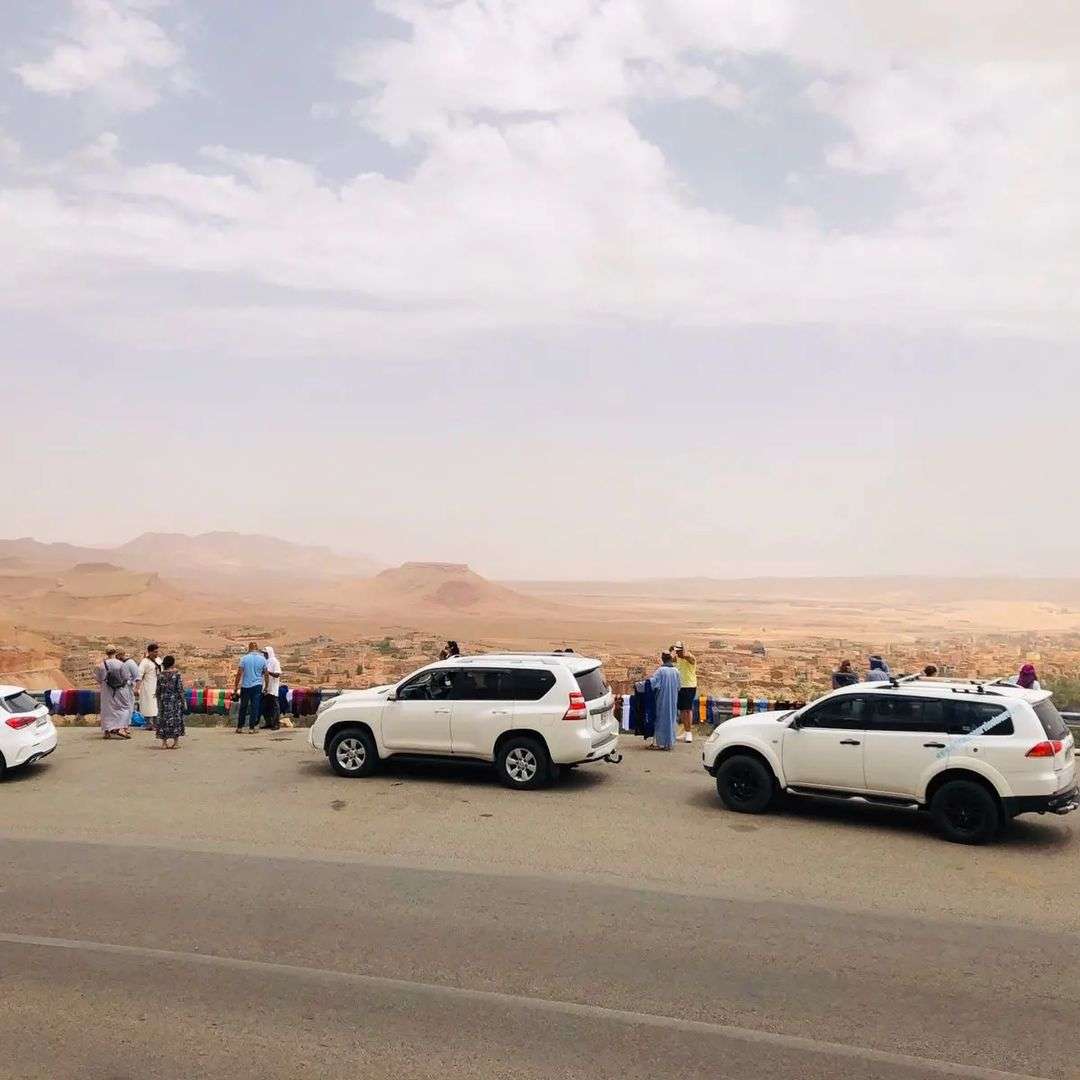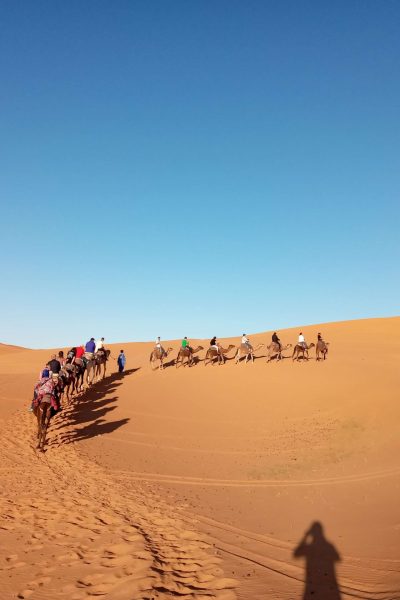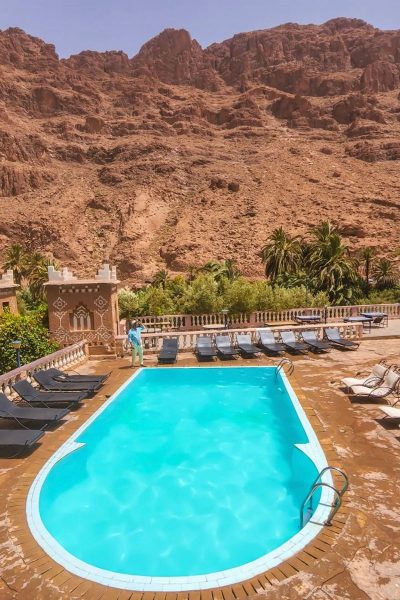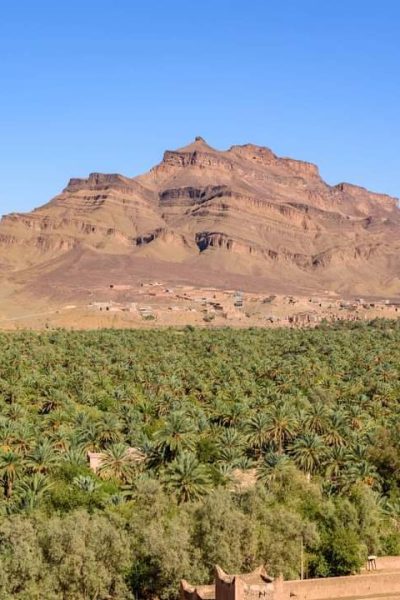Morocco Travel Guide
Morocco Traveler's Blog
Latest Posts
Morocco is a top destination in Africa, known for its rich culture, stunning landscapes, and vibrant cities. This morocco travel tips guide will help you plan your perfect trip.
Table of Contents
ToggleDiscover the beauty of the Atlas Mountains, the colorful souks, and the lively medinas. Experience staying in a traditional riad or swimming in crystal-clear waters. While Marrakech is popular, Morocco offers much more from the Sahara Desert to hidden gems like Fes and Chefchaouen.
Start planning your Morocco adventure today with you guide in Morocco!
10 of the best things to do in Morocco
Marrakech to the stunning dunes of the Sahara, this guide highlights 10 must-do activities for any traveler.
Morocco with kids travel guide (2025)
This family-friendly guide covers the best activities, attractions, and tips for a smooth and exciting trip with children.
what to Pack for your trip to Morocco
This essential packing guide ensures you’re prepared for Morocco’s diverse climates and experiences.
Planning a Trip to Morocco: A First-Timer’s Travel Guide
Do You Need a Visa for Morocco?
No, travelers from the US, Canada, the UK, EU countries, Australia, New Zealand, and many other countries don’t need a visa to visit Morocco, if the trip is less than 90 days.
Where Is Morocco Located?
Morocco is situated in northwest Africa, just south of Spain across the Strait of Gibraltar. Its unique location places it at the crossroads of Africa and Europe, blending Arab and Berber cultures for a truly distinctive experience.


How to Travel to Morocco
The main international gateway to Morocco is Casablanca’s Mohammed V Airport (CMN), with another popular option being Marrakech Menara Airport (RAK). Major airlines like Delta, British Airways, and Emirates service both airports. Depending on your itinerary, consider flying into one and out of the other—many travelers do this by flying into Casablanca and departing from Marrakech.
Alternatively, you can take a ferry from Spain to Morocco. The fastest routes from Algeciras or Tarifa to Tangier take about 1.5 hours, while the Barcelona to Tangier ferry takes 28-36 hours. Ferries also allow you to bring your car, though it requires extra planning.
Getting Around Morocco
The Best Ways to Travel Around Morocco: Trains, Taxis, and Tours
Trains
Morocco’s train network is reliable and affordable, connecting major northern cities with comfort and efficiency.
Buses
Public and private buses serve cities nationwide but are often slow and overcrowded. For shorter trips, taxis are a better option.
Taxis
There are two types of taxis in Morocco:
- Petit Taxis: Small taxis for up to three passengers, perfect for city trips.
- Grand Taxis: Larger vehicles for up to six passengers, used for city-to-city travel.
Planes
For long-distance travel between cities, consider flying with Royal Air Maroc or Air Arabia Maroc, the two main domestic airlines.

Best Time to Visit Morocco
Touring Around Religious Holidays
Morocco’s official religion is Islam, and while most religious holidays won’t affect travel, Ramadan is important to consider when planning a trip.
Ramadan lasts about 30 days, typically from March or April to April or May. During this time, Muslims fast from dawn to sunset, and many restaurants and cafes close during the day. Though non-Muslim visitors are not expected to observe Ramadan, these closures may impact your experience.
Visiting during Ramadan offers a unique cultural experience, with lively celebrations after sunset in cities across Morocco.
Best time for a vacation in Morocco
Seasons & Weather in Morocco
Northern cities like Casablanca and Tangier enjoy a Mediterranean climate, with cool sea breezes even in summer. In Casablanca, summer averages around 73°F (23°C), and winter drops to 55°F (13°C).
Cities like Fes and Marrakech, located further south, can get extremely hot in summer, with temperatures often exceeding 90°F (32°C), sometimes reaching triple digits. Winter averages around 54°F (12°C).
Rainfall is heaviest between November and March, particularly along the coast, so plan accordingly when visiting Morocco.
Language in Morocco
Morocco’s official languages are Modern Standard Arabic and Standard Moroccan Berber. However, Moroccan Arabic and various Berber dialects are most commonly spoken. Due to Morocco’s French colonial history, French is also widely used.
Do They Speak English in Morocco?
While English is not widely spoken, most people in the tourism industry have a basic understanding of the language.
Money in Morocco
The currency is the Moroccan Dirham (MAD). Cash is widely used, so it’s important to visit an ATM upon arrival. While many restaurants and shops accept credit cards (excluding American Express), it’s recommended to carry cash for tipping and souk shopping.
How to Dress in Morocco
In Morocco, it’s important to dress modestly, in line with Muslim customs. For women, it’s recommended to wear tops that cover the chest and shoulders, and pants or skirts that cover the knees. Long dresses and skirts are also acceptable. When visiting mosques, ensure your shoulders and chest are covered.
Head coverings are not required, but it’s a good idea to bring a scarf just in case. In cities like Marrakech, dress tends to be more casual. Both men and women must remove their shoes when entering mosques, so it’s useful to carry a bag for your shoes.

Traditional Foods & Beverages in Morocco
what to do in morocco? Moroccan cuisine is rich in flavors and spices, with turmeric, saffron, and cumin being staples in many dishes. Bread is central to every meal, in various forms such as flatbreads, pastries, and even pancakes. Here are some must-try traditional dishes and beverages in Morocco:
- Couscous: Morocco’s national dish, usually served with a meat and vegetable stew.
- Harira: A hearty soup made with tomatoes, lentils, chickpeas, and lamb, traditionally served during Ramadan.
- R’fissa: A Casablanca specialty with flaky pancakes, chicken, and onion broth.
- Tanjia: A Marrakech dish of lamb or veal slow-cooked in a terracotta jar for tender meat.
- Tagine: A slow-cooked stew in a clay pot, often with lamb, beef, or chicken, flavored with herbs and spices.
- Pastilla: A sweet-savory meat pie with poultry or seafood, sugar, cinnamon, and almonds.
- Zalouk: A spread made from eggplant, garlic, tomatoes, and olive oil, typically served with bread.
- Gazelle Horns: Almond and orange blossom-filled pastries, perfect with mint tea.
- Chebakia: Fried sesame cookies dipped in honey, shaped like flowers.
- Msemen: A flatbread often eaten for breakfast or as street food, either sweet or savory.
- Baghrir: Moroccan “thousand-hole” pancakes, usually served for breakfast.
- Mint Tea: The most popular beverage in Morocco, served hot with fresh mint and varying levels of sweetness.
Morocco’s food scene offers a delightful mix of flavors, from savory to sweet, making it a culinary adventure for every traveler.
Shopping in Morocco
Also one the best morocco travel tips is Shopping in Morocco is an unforgettable experience, with a wide variety of unique items to choose from, including leather goods, pottery, furniture, jewelry, clothes, and home decor. The bustling markets, especially in cities like Marrakech, offer a chance to find one-of-a-kind treasures. Be sure to budget for shopping when planning your trip to Morocco—you’ll want to bring home some of these amazing finds!
Experience more than a Tour, create a story.
If you’ve made it this far, why not take your Moroccan adventure to the next level? Consider traveling Morocco tour Operator for a truly unique experience. Seeing Morocco beyond the tourist spots, connecting with its culture, traditions, and people for a deeper, more meaningful journey. Travel with us and create memories that will last a lifetime!

